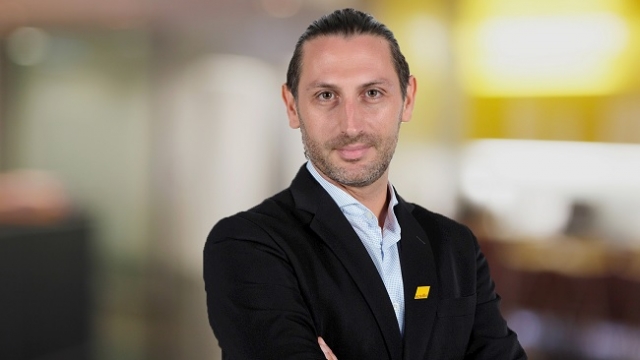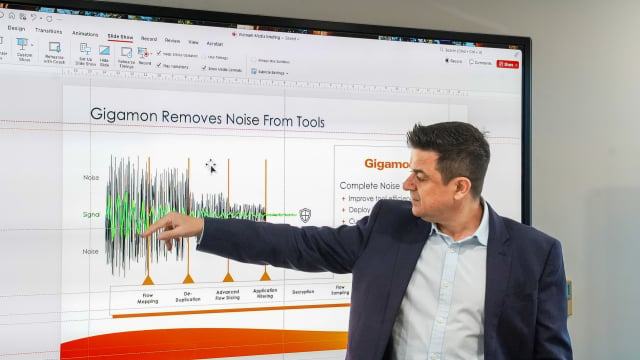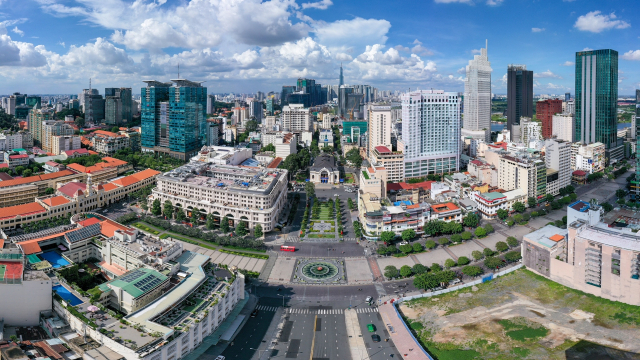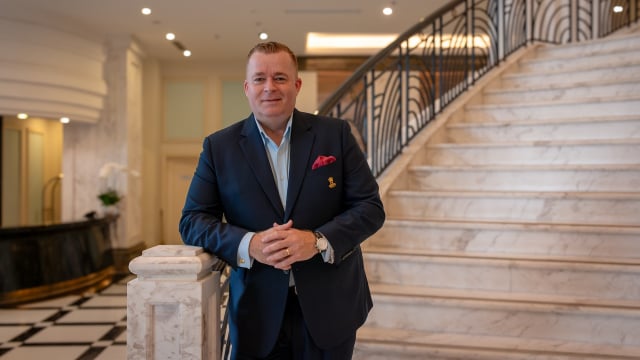Leader Talk
How hospitality industry adapts to the post-pandemic tourism
TheLEADER talks with Alma Resort’s general manager Herbert Laubichler-Pichler, an Austrian national who has 14 years' experience in Vietnam, to better understand the changes in the post Covid-19 tourism industry.
How has the Covid-19 pandemic impacted your business? What did you do during the social distancing time to mitigate the impact?
Herbert Laubichler-Pichler: Alma opened late December 2019 and then temporarily closed in April and May due to Vietnam’s national lockdown. Covid-19 is reshaping the way we do business, particularly in light of making things even safer and more hygienic for guests and staff.
We have looked at our closure in as positive light as possible, as it affords us a unique opportunity we otherwise would not have. We have used this time to scrutinize and alter our product and the experiences we offer, based on the initial things we have learnt about our guests’ preferences and habits. When we open the resort the second time on May 31, with the information that we did not have the first time, we will make the resort and the experiences we offer even better.
Despite all the research you do before an opening, there are always things you think will appeal to the guests that do not and vice versa. It is much harder to change, for example, your culinary landscape when you are busy with the daily operations of a property.
You close the hotel, and you have more work to do than ever before. But it has been exciting, and I always like a challenge. In the long-term, we will win by how we have handled the short-term.
.jpg)
Covid-19 is changing the hospitality industry, and this has all sorts of implications ranging from bolstered online communication and new approaches to training, to altered operations and social distancing and cleaning habits in dining and housekeeping.
Staff training has been a major priority for Alma during this time and we have been using technology wherever possible to deliver training. For example, we have been holding English lessons through Zalo video call and we believe this also helps staff still feel connected and supported, and that they still belong to our resort’s community.
The staff have also engaged in refresher SOP (standard operating procedures) courses, and they have been doing more system training in the various departments as well as working on improving the guest experience. For example, the food and beverage department has been reviewing all concepts, and looking at what dishes sell, what dishes do not, and coming up with new menus, as well as undertaking further training.
What do you think about the domestic market with the future of Alma’s business while international flights have not been reconnected? How will you leverage the local demand?
Herbert Laubichler-Pichler: It really is time for us all to band together to support one another across the tourism industry, and to encourage the Vietnamese to travel in their “own backyard” where it is relatively safe.
It’s important to note that the domestic market has always been our main market. We have focused first and foremost on this market as Alma has introduced a new concept to Vietnam. The Vietnamese market is our most important market and will continue to be in the coming years.
Alma offers an unprecedented collection of venues and facilities in Cam Ranh, offering Vietnamese travellers something new. As we only opened late December last year, Alma is a brand-new resort that commands 30 hectares of beachfront with a cascade of 12 beachfront swimming pools to Long Beach, arguably Vietnam’s best beaches.
Our independently owned and operated five-star resort is breaking new ground in Cam Ranh, a peninsula on Vietnam’s south-central coast that first found fame as Southeast Asia’s greatest deep-water harbor and is now rising as an upscale alternative to nearby Nha Trang.
Alma offers an awe-inspiring host of world-class facilities, such as an eclectic selection of restaurants helmed by leading chefs, a food court with an array of local and international cuisine, a classical bar, pool bar and beach bar, and mini supermarket.
Other drawing cards include a science museum, waterpark, 13-treatment room spa, art gallery, cinema, convention centre, amphitheatre, youth centre with virtual reality games, kid’s club, water sports centre, gymnasium and yoga room and an 18-hole mini golf course.
What strategies will you apply to bring Alma’s business back to normal?
Herbert Laubichler-Pichler: In addition to my response to your first question about what we have been doing at the during the pandemic, we already have some 3000 room nights on the books for when we reopen.
Our resort’s capacious pavilions, with their own kitchens, are the category of accommodations in high demand. I believe this is because people feel safer travelling with their families in accommodations that are spacious and have their own kitchens, as well as gardens, balconies/terraces and swimming pools, so that they don’t have to interact with other people. Having a kitchen is seen to help ensure the safety of your family and from a psychological viewpoint, people are afraid to mingle with too many people they don’t know.
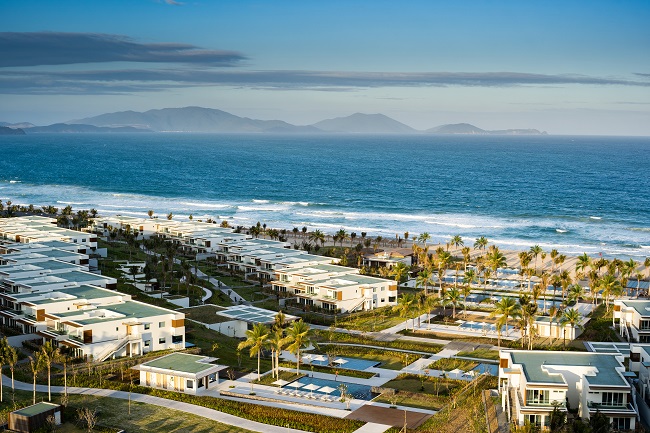
Our two- and three-bedroom ocean view and ocean front pavilions range from 144 to 224 square metres and all have sweeping views of Long Beach. All the pavilions feature master bedrooms with soaking bathtubs and separate rainwater showers, huge living rooms with massive sofas, kitchen and dining areas.
They are equipped with all sorts of amenities and gadgets for boosted holiday luxury including sensor-controlled air-conditioning, Bluetooth televisions, ample closet space and kitchens with microwave ovens, fridges and tea and coffee making facilities.
All the three-bedroom pavilions and the two-bedroom ground floor pavilions boast private swimming pools and terraces with sunbeds. The two-bedroom upper floor pavilions feature expansive balconies with a private jacuzzi.
Based on the number of rooms already booked at our resort from when we reopen, I have a feeling that, for now, it is about psychological sales more than ever.
Some people are thinking: ‘I have to do something nice, and quickly, for me and my family’. After people have been locked down in their homes, the feeling of travelling, of being at a luxurious resort spending time with family, is more compelling than ever because we have not been allowed to do this.
It is important to note that we have not lowered our room rates, as we are experiencing strong demand from the domestic market. We also have sales, marketing and public relations efforts in place to promote our resort to the domestic and international markets.
Does Alma have partnership with any other businesses that could be good to push the demand of business?
Herbert Laubichler-Pichler: We have supported travel agents and retailers by providing them with information about our preventive safety measures for staff and guests, and we have also given our business partners very good rates.
We will be working closely with other attractions in Cam Ranh such as, for example, the Greg Norman-designed KN Golf Links Cam Ranh to offer guest experiences such as a “Stay and Play” package.
What is your view on how tourism and hospitality will change after the pandemic? What actions has Alma taken to adapt?
Herbert Laubichler-Pichler: In the wake of Covid-19, I believe travellers are much more aware and appreciative of safety in hygiene and social distancing.
We aren’t looking at changes as difficulties, we are looking at them as opportunities, to ultimately keep our guests and staff safe and healthy. For example, we will maintain social distancing at all our restaurants, and throughout the resort, with various hygiene measures in place.
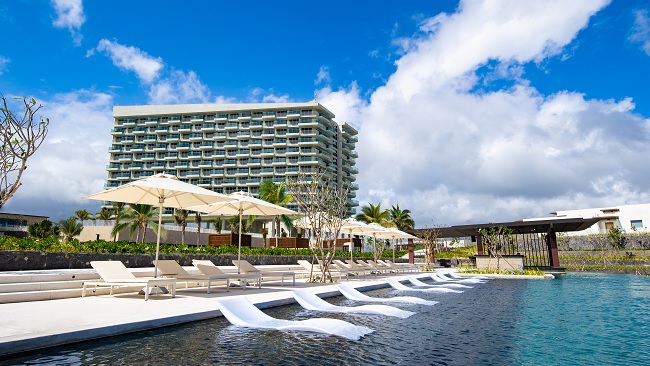
There will be a system at our restaurants whereby, rather than the waiter giving you bread and butter, and then pouring a wine, and all sorts of gradual steps within close proximity etc, food and beverages will be brought to the guests and they can handle everything themselves.
On all tables and surfaces, there will no longer be things that people can touch. For example, there will no longer be salt and pepper on the tables. Guests will have to specifically ask for them, and they will be cleaned straight after use.
When dining at restaurants, guests will be encouraged to sit outside on the terrace in the fresh air if they wish, and tables will be placed so that there is plenty of distance between them. Also, sunbeds will be arranged around the pools in a way that helps guests stay away from other guests they do not know. Our resort is 30 hectares so we have plenty of space.
Our staff will place everything in the room, extra towels and extra bed linen, so guests do not have to have staff entering the room daily for turndown etc. If our guests want something, they can call room service and get them to deliver this to their door.
Guests will have their temperature checked when they arrive, and there will be disinfectant for them to immediately wash their hands-on arrival etc. Our guests can buy their own food from our Alma mini supermarket to cook in the accommodations’ kitchens or they can ask room service to deliver food to the doorstep (with cashless payment).
Please share your recommendations for tourism and hospitality industry in the context that the risks from Covid-19 still exist?
Herbert Laubichler-Pichler: We are very happy and impressed with the Vietnamese authorities’ initial management and handling of the Covid-19 crisis. Vietnam’s Covid-19 response has been hailed worldwide a huge success, based on quick and thorough action that kept the number of Covid-19 cases very low.
Each and every hotel, resort and restaurant in Vietnam now has to take its responsibility to keep its guests and staff, and ultimately the wider community, safe very seriously. With social distancing measures easing, all hotels, resorts and restaurants need to ensure they are implementing sweeping safety and hygiene measures to protect people from the threat of Covid-19.
We cannot go back to acting like we did before, as if nothing has happened. Only placing hand sanitizers at the entrance of a restaurant does not cut the mustard, particularly if you are still leaving salt, pepper and chili bottles on the table for everyone to touch, and huddling chairs together as if social distancing was a passing fad. We need to do more.
Perhaps the government could issue strict safety, hygiene and social distancing rules for every hotel, resort and restaurant, and make sure everything is followed up with random checks by inspectors and auditors. After all, we are all in the same boat and if someone is not taking the threat of Covid-19 seriously, it jeopardizes not only the entire tourism industry’s efforts but, significantly, the broader community’s health and people’s lives.
We do not want to undo all the fantastic work that has been achieved in Vietnam so far. The idea of an outbreak occurring now is frightening. Unfortunately, the reality is we are still only at the beginning of this and until there is a vaccine or cure, we cannot go back to how we used to behave. It is too early now to relax, we all need to do everything we can to protect each other.
Thank you!
Hotels struggle to resume operation after lockdown
Vietnam turns semiconductor vision into action
The global semiconductor industry is being reshaped by geopolitical tensions, shifting supply chains, and the surge of digital technologies.
Cutting red tape in APA approvals to speed up tax negotiations
The change in APA approval authority is expected to shorten processing time and enhance business proactiveness in international tax negotiations.
Enterprise cybersecurity is under threat from the inside
As hybrid cloud systems grow more complex, Vietnamese enterprises are struggling to detect cybersecurity threats moving laterally within their own networks.
Breakthrough for the international financial center ambition
The submission of the draft resolution on Vietnam’s international financial center to the National Assembly heralds a new developmental era for the country.
How leadership philosophy redefines hospitality in Nha Trang
More than just running a 5-star resort, Kristian Petersen is redefining the art of hospitality with a humane and sustainable leadership philosophy.
When organic becomes an inspiring wellbeing lifestyle
For Tyna Huynh, co-founder of Drinkizz, organic is not just a food choice but a way of life that fosters a deep connection between people, nature and community.















